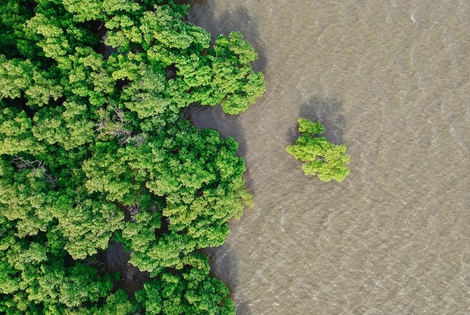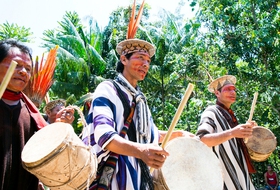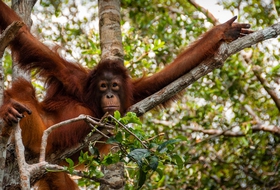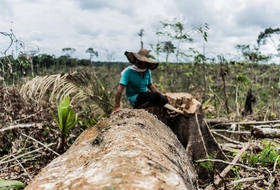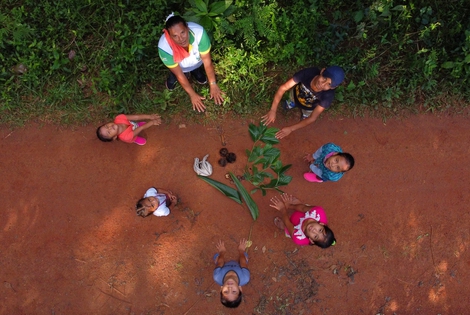
The Amazon became an alternative classroom during the pandemic. Now, the educational forest in Batraja, Bolivia, lives on to teach children and adults the value of nature.
L’organo religioso dello stato malese di Terengganu ha invitato i fedeli a proteggere gli animali vietando la caccia alle specie in via di estinzione.
Imagine if the Pope excommunicated those who kill brown bears (Ursus arctos) or common spadefoots (Pelobates fuscus). Something along these lines happened in Malaysia, where the Islamic authority issued a fatwa against illegal hunting and wildlife trafficking. A “fatwa” is a legal decision on issues regarding Islamic law or worship practices.
It’s a religious decree that recognises the poaching and trafficking of Malaysia’s endangered species to be “Harām”, forbidden. The Asian country is the second nation to issue a religious order against poaching, after Indonesia.
Islamic clerics of Terengganu state in northeastern Malaysia, in consultation with experts of the Department of Wildlife and National Parks and a group of researchers, have invited Malaysian Muslims to protect wildlife, considered to be Allah’s creatures, and have banned the hunting of protected species.
“I think there was an urgent need for this fatwa because not many Muslims in Terengganu are aware that the Malayan tiger and its prey such as sambar deer are facing extinction, not just in the state, but within the entire country,” said Gopalasamy Reuben Clements, an Associate Professor of the Universiti Malaysia Terengganu.
“We do not naively believe that this fatwa will instantly stop the poaching,” Clements explains. “We recognize that many of those who are involved in poaching belong to communities that are predominantly made up of practicing Muslims, and for whom religious leaders and fatwas command respect. At the very least, we hope this fatwa will start to create peer pressure around poachers”.
The state of Terengganu demonstrates that religious leaders can positively influence and raise the awareness of believers on environmental and biodiversity conservation issues.
Siamo anche su WhatsApp. Segui il canale ufficiale LifeGate per restare aggiornata, aggiornato sulle ultime notizie e sulle nostre attività.
![]()
Quest'opera è distribuita con Licenza Creative Commons Attribuzione - Non commerciale - Non opere derivate 4.0 Internazionale.
The Amazon became an alternative classroom during the pandemic. Now, the educational forest in Batraja, Bolivia, lives on to teach children and adults the value of nature.
Our species took its first steps in a world covered in trees. Today, forests offer us sustenance, shelter, and clean the air that we breathe.
Bangladesh suffered widespread damage as a result of Cyclone Amphan. Yet the Sundarbans mangrove forest acted as a natural barrier protecting the country from further destruction, as it has done countless times before.
On top of a 2.4 million dollar compensation, the indigenous Ashaninka people will receive an official apology from the companies who deforested their lands in the 1980s.
The tapir was reintroduced into Brazil’s Atlantic Forest, the country’s most at-risk ecosystem. The species can play a key role in the forest’s recovery.
Forests are home to 80 per cent of the world’s terrestrial biodiversity. This year’s International Day of Forests highlights the urgent changes needed to save them.
After a legal battle that lasted two years, Indonesia’s Supreme Court has revoked the permit to mine for coal in the forests of South Kalimantan in Borneo.
The list of human and animal victims of the Australia wildfires keeps growing – one species might already have gone extinct – as the smoke even reaches South America.
Areas where the FARC guerrilla used to hold power in Colombia have faced record deforestation. Farmers cut down trees, burn land and plant grass for cows. Because, “what else can we do for a living here in the Colombian Amazon”? An intimate report from the heart of the felled forest in Caquetá.




